How Mobile Learning is Changing the Classroom Dynamic
12 January 2025
In recent years, mobile learning has transformed the traditional classroom in ways we could only have imagined a decade ago. Gone are the days when students were restricted to textbooks, desks, and chalkboards. Today, almost every student has access to a mobile device, whether it's a smartphone, tablet, or laptop. And this shift towards mobile learning is changing the classroom dynamic in a big way.
But what exactly is mobile learning? How is it affecting the way students learn and teachers teach? And why is it becoming such a powerful tool in education? Let's dive into the world of mobile learning and explore how it's bringing classrooms into the 21st century.

What Is Mobile Learning?
Before we get into the nitty-gritty of how mobile learning is reshaping classrooms, let's first define what it actually is.Mobile learning, often referred to as "m-learning," is education that takes place via portable electronic devices such as smartphones, tablets, and laptops. It allows students to access educational materials, participate in online discussions, watch instructional videos, and collaborate with peers — all from the convenience of a mobile device.
Now, you might be thinking, "Well, isn't that just online learning?" The difference is that mobile learning emphasizes mobility—you can learn anytime, anywhere. Whether you're on a bus, in a coffee shop, or even at the beach, mobile learning enables you to engage with educational content whenever and wherever it suits you.
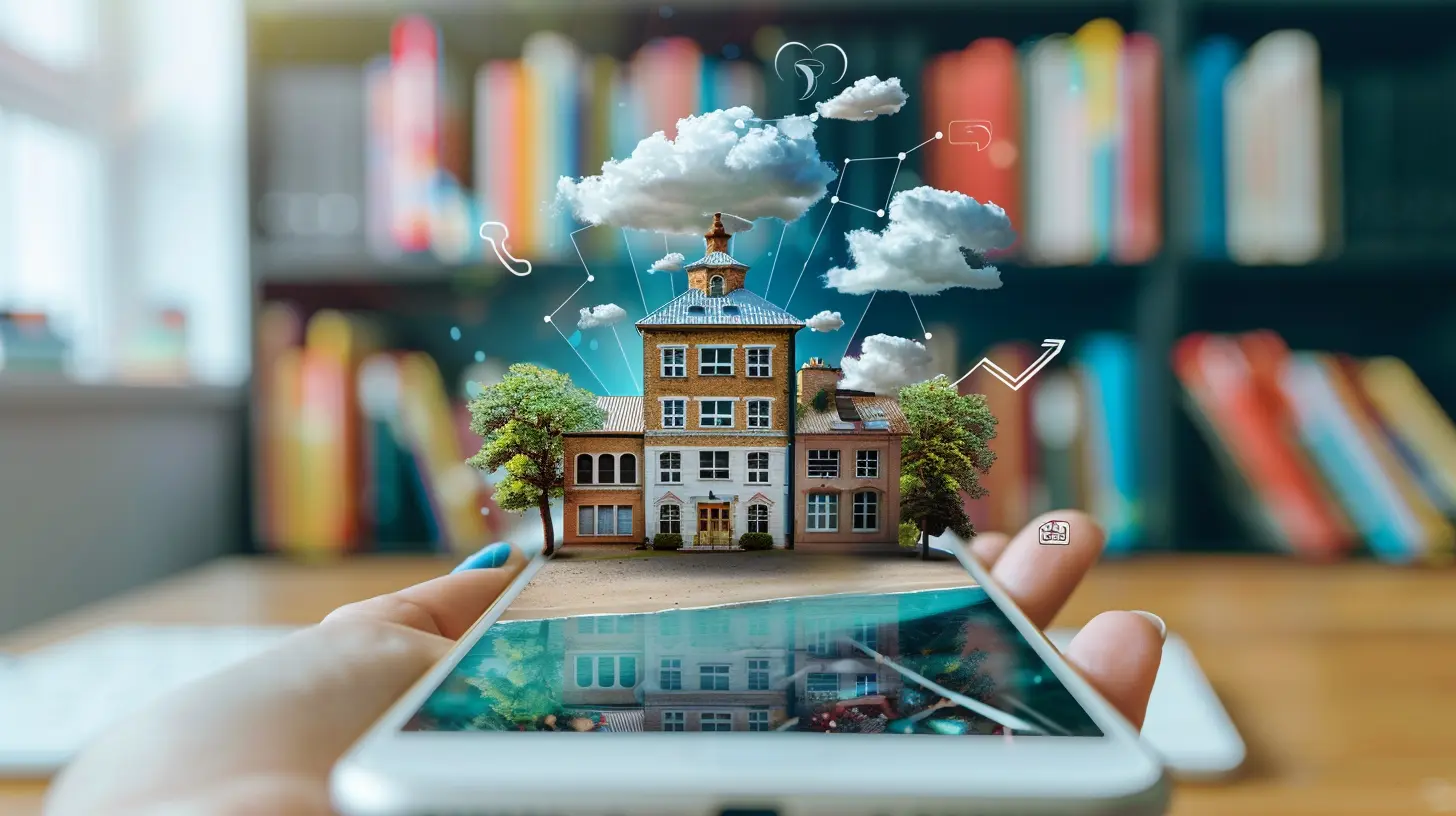
Changing the Classroom Dynamic: Flexibility and Accessibility
One of the most significant ways mobile learning is changing the classroom dynamic is through flexibility. The traditional classroom model requires students to be physically present at a specific time and place. This can be limiting, especially for students who have busy schedules or face barriers to attending in-person sessions.With mobile learning, students can learn at their own pace, on their own time. Imagine a student who has a part-time job or family responsibilities. Instead of missing out on lessons, they can catch up during their lunch break or after work. Mobile learning opens doors for students who might otherwise struggle to balance education with other commitments.
Bridging the Gap for Students with Disabilities
Mobile learning also offers a unique advantage for students with disabilities. For those who have difficulty navigating traditional classroom settings, mobile devices can be customized to meet their needs. Text-to-speech software, adjustable font sizes, and screen readers are just a few examples of how mobile learning tools can make education more accessible.In this sense, mobile learning is a great equalizer. It allows for a more inclusive classroom where students of all abilities can engage with the material in ways that work best for them.
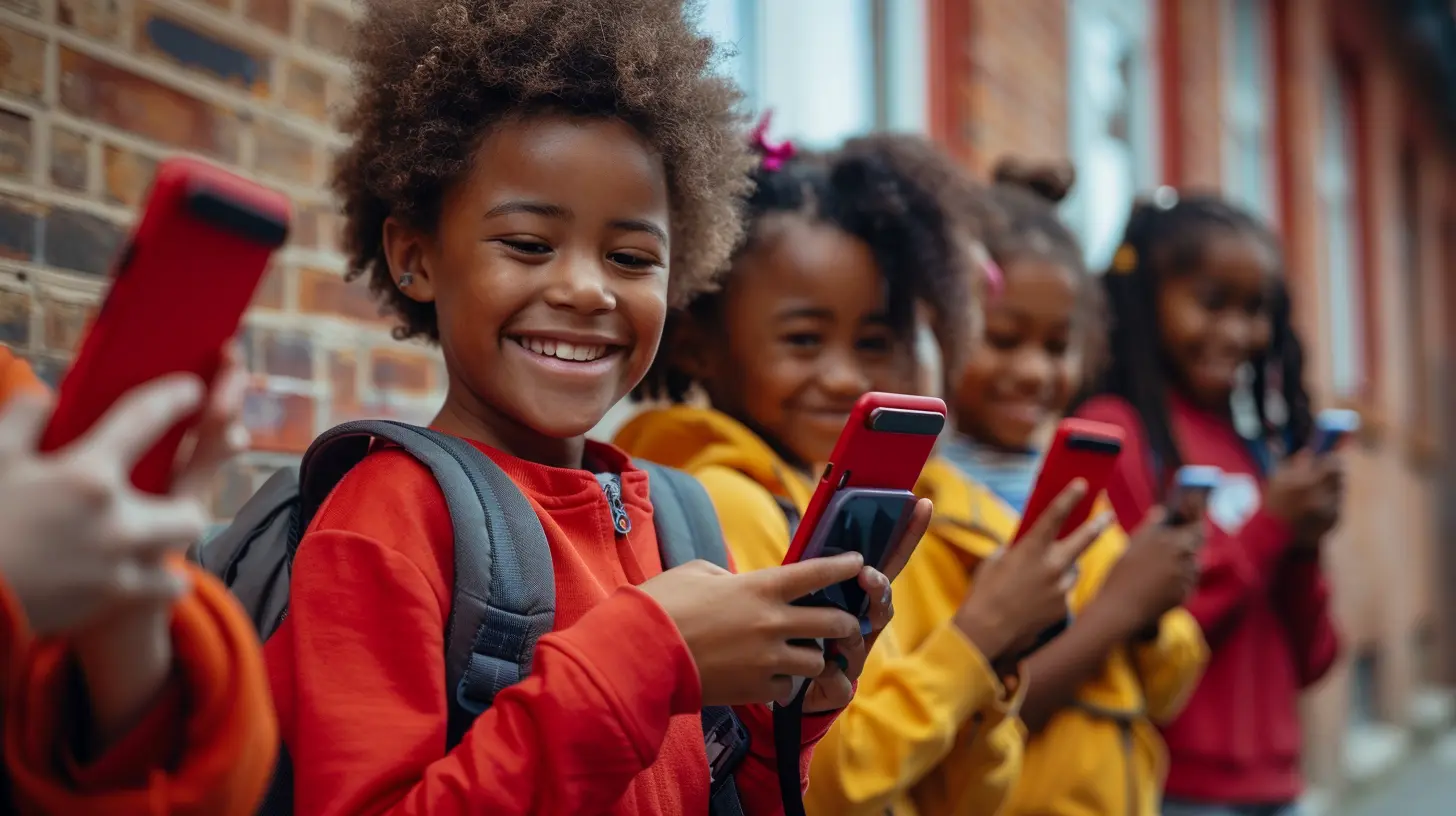
Enhancing Student Engagement
Let's be honest—keeping students engaged in a traditional classroom setting can be a challenge. With distractions like smartphones and social media, it's no wonder teachers often struggle to hold their students' attention. But here's the twist: instead of fighting against these distractions, mobile learning embraces them.By incorporating mobile devices into the learning process, teachers can actually tap into the very tools that are vying for students' attention. Educational apps, interactive quizzes, and multimedia content can turn a boring lecture into an engaging, interactive experience.
Gamification: Turning Learning into Play
One of the most exciting ways mobile learning is enhancing student engagement is through gamification. This is where educational content is delivered in the form of games, complete with points, rewards, and challenges.Think about it: students already spend hours playing video games on their phones. By turning learning into a game, educators can make lessons more fun and engaging. And the best part? Gamification doesn't just make learning more enjoyable—it also makes it more effective. Studies have shown that students retain information better when it's presented in an interactive, game-like format.
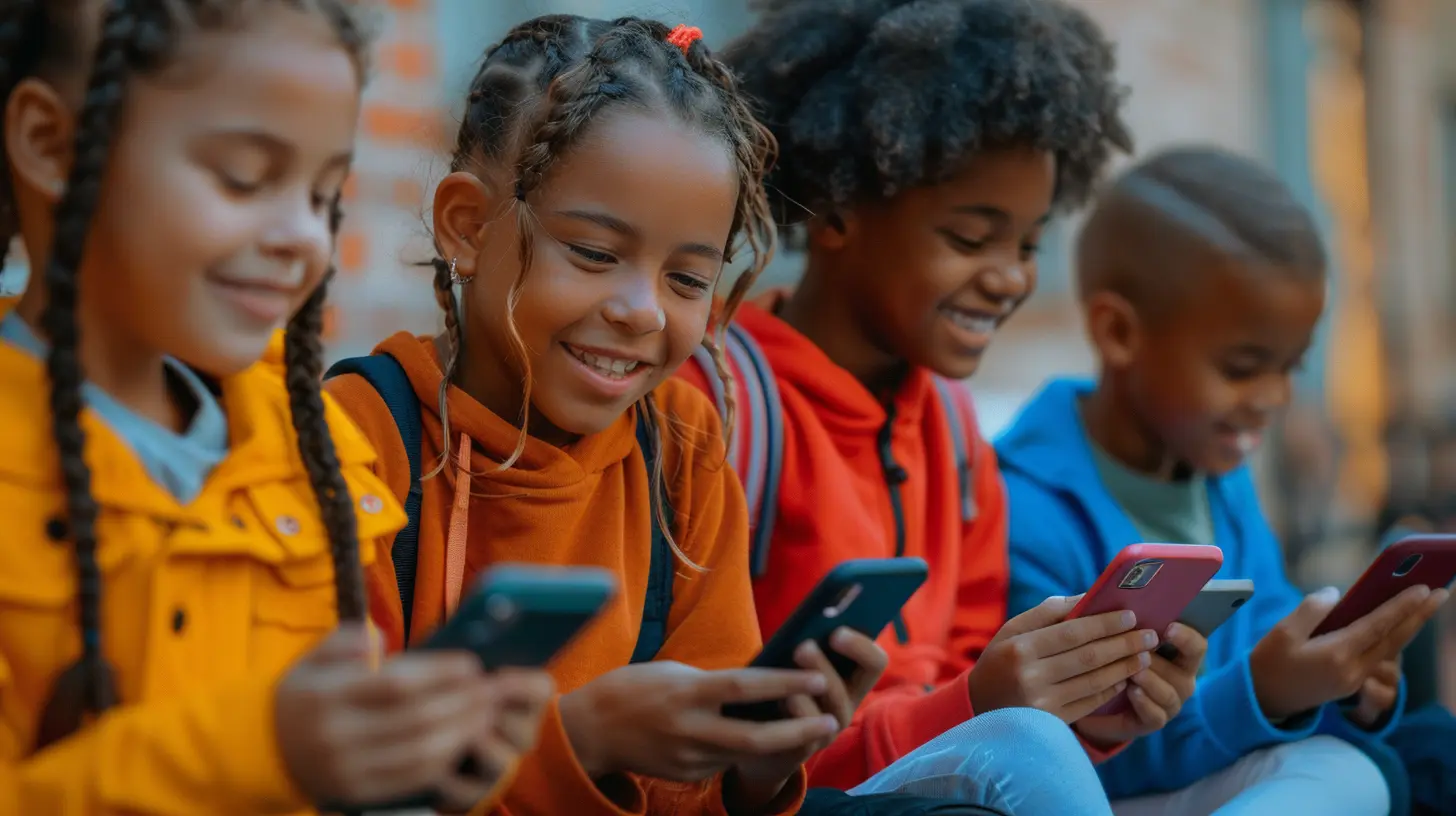
Personalized Learning Experiences
Another way mobile learning is shaking up the classroom dynamic is through personalized learning. In a traditional classroom, it's nearly impossible for a teacher to tailor their lessons to meet the needs of every individual student. Some students may struggle to keep up, while others may find the material too easy and get bored.Mobile learning solves this problem by allowing students to learn at their own pace. With personalized learning apps, students can move through lessons at a speed that's comfortable for them. If they don't understand a concept, they can review the material as many times as they need. On the flip side, if they grasp a topic quickly, they can move on to more advanced content without waiting for the rest of the class to catch up.
Adaptive Learning Technology
What's even more exciting is the rise of adaptive learning technology. These are mobile apps and platforms that adjust the difficulty of the content based on the student's performance. For example, if a student is struggling with a particular math problem, the app will offer easier problems to help build their confidence before gradually increasing the difficulty.It's almost like having a personal tutor in your pocket! This kind of tailored approach not only improves learning outcomes but also boosts students' confidence and motivation.
Collaboration Beyond the Classroom Walls
Mobile learning doesn't just transform how students access information—it also changes how they collaborate with their peers. In a traditional classroom, collaboration is often limited to group projects or in-class discussions. But with mobile devices, students can communicate and work together no matter where they are.Virtual Study Groups
One great example is the rise of virtual study groups. With messaging apps, video conferencing tools, and cloud-based platforms like Google Docs, students can collaborate on assignments, share notes, and discuss class materials in real-time—even if they're miles apart.This kind of collaboration breaks down the walls of the classroom, allowing students to learn from each other in a more dynamic and flexible way. And let's face it—collaborating with your classmates while sitting in your pajamas at home sounds a lot more appealing than staying after school for a group project, right?
Teacher's Role in a Mobile Learning Environment
As mobile learning becomes more prevalent, the role of the teacher is also evolving. In a traditional classroom, teachers are the primary source of knowledge. They stand at the front of the room, delivering lectures and guiding students through the material.But in a mobile learning environment, the teacher's role shifts from being the "sage on the stage" to the "guide on the side." Instead of simply delivering information, teachers become facilitators who help students navigate their learning journeys.
Facilitating Self-Directed Learning
Mobile learning encourages self-directed learning, where students take ownership of their own education. Teachers play a crucial role in guiding students, providing support when needed, and pointing them toward resources. Rather than spoon-feeding information, teachers help students develop critical thinking skills, encouraging them to ask questions, seek answers, and take an active role in their learning.This shift empowers students to become more independent learners, a skill that will serve them well beyond the classroom.
Challenges of Mobile Learning
Of course, no educational model is perfect, and mobile learning comes with its own set of challenges.Digital Divide
One of the biggest challenges is the digital divide. While mobile devices are becoming more common, not all students have equal access to them. Students from low-income families may not have smartphones or reliable internet access at home, which can put them at a disadvantage in a mobile learning environment.Distractions and Time Management
Another challenge is the potential for distractions. Mobile devices are not just educational tools—they're also sources of entertainment. Social media, games, and messaging apps can easily divert students' attention away from their studies. Teachers and parents need to work together to create a balance, ensuring that students stay focused on their learning tasks.Teacher Training and Adaptation
Lastly, not all teachers are comfortable with mobile technology. Transitioning from traditional teaching methods to mobile learning requires training and support. Teachers need to be equipped with the skills and knowledge to effectively integrate mobile devices into their classrooms.
The Future of Mobile Learning
Despite these challenges, the future of mobile learning looks incredibly promising. As technology continues to advance, we can expect even more innovative tools and apps that make learning more engaging, personalized, and accessible.With the rise of 5G networks, augmented reality (AR), and virtual reality (VR), mobile learning is poised to take education to the next level. Imagine students exploring ancient civilizations through AR or conducting virtual science experiments using VR goggles. The possibilities are endless.
As mobile learning continues to evolve, it's clear that the classroom of the future will be more flexible, inclusive, and student-centered than ever before.
Conclusion
Mobile learning is not just a trend—it's a revolution. It’s reshaping the classroom dynamic by offering flexibility, enhancing engagement, and personalizing the learning experience. While there are challenges to overcome, the benefits far outweigh the drawbacks. As educators, students, and parents, we need to embrace this change and harness the power of mobile learning to create a more inclusive and dynamic educational environment.So, the next time you see a student glued to their smartphone, don't be too quick to judge. They might just be learning!
all images in this post were generated using AI tools
Category:
Innovation In EducationAuthor:

Olivia Lewis
Discussion
rate this article
18 comments
Luna Wolfe
This article effectively highlights the transformative impact of mobile learning on classroom dynamics. It illustrates how technology enhances engagement, collaboration, and accessibility, making education more interactive and inclusive for all students.
April 2, 2025 at 3:46 AM

Olivia Lewis
Thank you! I'm glad you found the article insightful and appreciate how mobile learning can enhance engagement and inclusivity in the classroom.
Garrett Malone
Mobile learning enhances engagement and accessibility in classrooms.
February 24, 2025 at 4:42 AM

Olivia Lewis
Thank you for your comment! I completely agree—mobile learning not only boosts engagement but also makes education more accessible for all students.
Hunter McNaughton
Oh sure, because who wouldn’t want a classroom where students engage more with their phones than with their teachers? Forget pencils and paper; let’s just hand out power banks and call it education!
February 16, 2025 at 9:54 PM

Olivia Lewis
I understand your concern, but mobile learning can enhance engagement when used effectively. It’s about finding a balance that incorporates technology while fostering meaningful interactions between students and teachers.
Elena Hahn
Mobile learning is like giving every student a tiny superhero sidekick! Forget about traditional classrooms—now they can zap knowledge straight to their pockets. Just imagine: 'Math class? Nah, I’m on a quest for algebra power-ups!' Who knew education could be so adventurous?
February 4, 2025 at 11:52 AM

Olivia Lewis
Absolutely! Mobile learning empowers students like never before, turning education into an exciting adventure where they can access knowledge anytime, anywhere. It's a game-changer for both engagement and learning!
Flynn Harris
Mobile learning empowers students, enhances engagement, and transforms traditional classrooms into dynamic, interactive learning environments.
January 31, 2025 at 11:40 AM

Olivia Lewis
Thank you for your insight! I completely agree—mobile learning indeed revolutionizes classroom interactions and boosts student involvement.
Gabrielle Acevedo
Mobile learning fosters engagement, transforming traditional classroom interactions.
January 24, 2025 at 1:58 PM

Olivia Lewis
Thank you! Indeed, mobile learning empowers students and enhances participation, reshaping how we engage in the classroom.
Finn Phillips
Mobile learning transforms education by fostering engagement, accessibility, and collaboration, creating a more inclusive and dynamic classroom experience for all.
January 19, 2025 at 1:53 PM

Olivia Lewis
Thank you for highlighting the key benefits of mobile learning! Its ability to enhance engagement and accessibility is indeed transforming classrooms into more inclusive and collaborative environments.
Vaughn
Mobile learning is undeniably transforming classroom dynamics, fostering greater engagement and accessibility. However, it also poses challenges, such as distractions and equity gaps. As educators, we must thoughtfully integrate these technologies, ensuring they enhance learning while addressing potential pitfalls for all students.
January 19, 2025 at 3:45 AM

Olivia Lewis
Thank you for your insightful comment! I completely agree that while mobile learning enhances engagement and accessibility, we must remain vigilant about distractions and equity issues. Thoughtful integration is key to maximizing its benefits for all students.
Jemima Rocha
Textbooks? So last century—bring on apps!
January 18, 2025 at 12:12 PM

Olivia Lewis
While apps are transforming learning, textbooks still provide essential depth and structure. A balanced approach can enhance the educational experience.
Sophia Hayes
Mobile learning is revolutionizing education by enhancing accessibility, fostering collaboration, and personalizing learning experiences. As technology becomes integral to classrooms, it empowers both students and teachers to engage more actively, ultimately transforming traditional teaching methods for the better.
January 16, 2025 at 1:27 PM

Olivia Lewis
Thank you for your thoughtful comment! I agree that mobile learning is indeed transforming education by making it more accessible and interactive for everyone involved.
Anna Love
Mobile learning is not just a trend; it's a revolution. Embracing this technology transforms classrooms into dynamic, interactive spaces where students take charge of their learning. It's time to ditch outdated methods and fully integrate mobile tools for genuine engagement and better outcomes.
January 15, 2025 at 7:56 PM

Olivia Lewis
Absolutely! Mobile learning is indeed reshaping education, fostering engagement and empowerment in the classroom. Embracing these tools is essential for adapting to modern learning needs.
Lorna McTiernan
Mobile learning is like a taco stand at a formal banquet—unexpected, a bit messy, but oh-so-deliciously transformative! It's spicing up classrooms, making knowledge as portable as a pocket-sized piñata. Let the fiesta begin!
January 15, 2025 at 12:14 PM

Olivia Lewis
Thank you for the creative analogy! Mobile learning truly brings an exciting and transformative flavor to education, enhancing engagement and accessibility for all students. Let the fiesta of learning continue!
Raven Kane
Mobile learning enhances classroom engagement, but requires careful integration to avoid distractions. Balance is key.
January 15, 2025 at 3:43 AM

Olivia Lewis
Thank you for your insightful comment! I completely agree that while mobile learning can boost engagement, it's crucial to integrate it thoughtfully to maintain focus and balance in the classroom.
Paul Simon
Mobile learning empowers students, enhancing engagement and collaboration in classrooms.
January 14, 2025 at 8:24 PM

Olivia Lewis
Absolutely! Mobile learning fosters active participation and teamwork, transforming traditional classroom dynamics into interactive and collaborative experiences.
Allison Sullivan
Mobile learning is revolutionizing education by fostering flexibility and accessibility. It empowers students to engage with content anytime, anywhere, enhancing collaboration and personalized learning experiences. As classrooms evolve, embracing technology is essential for preparing learners for a dynamic future.
January 14, 2025 at 1:00 PM

Olivia Lewis
Thank you for your insightful comment! I completely agree that mobile learning is transforming education by promoting flexibility and collaboration, ultimately preparing students for a dynamic future.
Ethan Morales
Mobile learning: because who wouldn’t want to attend class in pajamas while mastering Algebra? Just remember, it’s all fun and games until your cat becomes the new class pet!
January 13, 2025 at 12:31 PM

Olivia Lewis
Absolutely! Mobile learning offers flexibility and comfort, but it also brings unexpected surprises—like our furry friends stealing the spotlight!
Elowyn Scott
Mobile learning revolutionizes education by fostering accessibility and engagement, empowering students to take control of their learning journeys. Embracing this shift can lead to more personalized and interactive classroom experiences.
January 12, 2025 at 12:55 PM

Olivia Lewis
Thank you for your insightful comment! I completely agree that mobile learning enhances accessibility and engagement, allowing for more personalized educational experiences.
Sara Wade
Mobile learning empowers students by fostering engagement and collaboration, transforming traditional classrooms into dynamic learning environments. By integrating technology, educators can personalize learning experiences, making education more accessible and relevant to today’s digital generation.
January 12, 2025 at 4:26 AM

Olivia Lewis
Thank you for your insights! Mobile learning indeed revolutionizes education by enhancing engagement and personalization, making it vital for today’s learners.
MORE POSTS

How to Use Learning Styles to Reduce Student Stress

How to Stay Focused During Long Study Sessions

The Role of Social Media in College Admissions: Dos and Don’ts
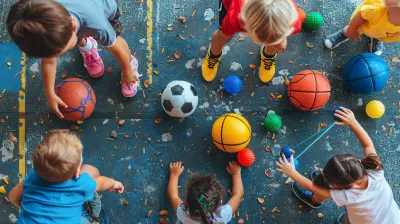
Integrating Technology into Physical Education: Tools for Teachers
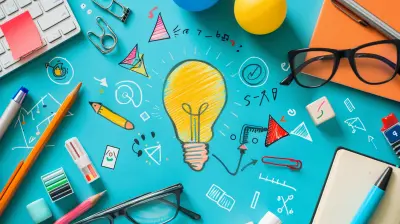
The Connection Between Learning Objectives and Assessment Strategies

Virtual Labs: Bringing Hands-On Science Experiments to Every Student

How to Adapt Your Study Strategy for Different Types of Exams

Inquiry-Based Learning and the Shift Toward Personalized Education"

Helping Children Cope with Big Emotions

The Importance of Fostering a Growth Mindset in a Tech-Driven World
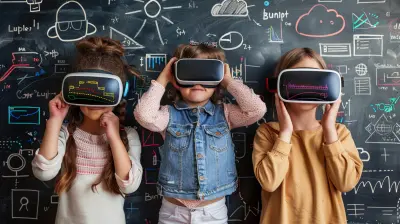
The Role of Wearable Technology in Education